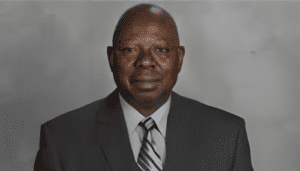Increased awareness as tool for checking COVID-19 spread
Stakeholders in healthcare sector observe that the effects of COVID-19 on humanity have affected every sphere of human endeavours such as in education, economy and health, among others.
Mrs Sarah Gimba, a medical practitioner in Abaji community of Abuja, notes that with the rising cases of COVID-19 cases in the country, government ought to send health workers to the rural areas for effective campaign against the pandemic.
She suggests the design of a grassroots user-friendly mobile application for effective information on how to avoid contact with the virus.
“This will result in an effective and coordinated response to the ongoing outbreak, sustain routine health services, especially at the community level, reduce morbidity and mortality and preserve health indices in the health system.
“The increasing community transmission of COVID-19 infections in the Federal Capital Territory (FCT) can be tied to inadequate sensitisation at the rural areas and paucity of testing capacity and overstretching of health resources,’’ she observes.
In a survey by Nigerian NewsDirect in some FCT communities, it is established that people don’t obey the COVID-19 protocols; and if they do, there are only few people that observe the protocol appropriately.
Nigerian NewsDirect also observes that during market days, burials and other social gatherings in some Abuja communities, there is no adherence to COVID-19 protocols, especially on wearing of face masks and social distancing by the people.
At a centre for Continues Voters Registration (CVR) and Identity Management Commission (NIMC) in some area councils in the Federal Capital Territory, Abuja, most of the people demonstrate brazen breach of COVID-19 protocols, NewsDirect observes.
Worried by the rate of its spread and people’s attitude to the outbreak, Secretary to the Government of the Federation and Chairman, Presidential Task Force on COVID-19 Boss Mustapha, notes that the number of COVID-19 cases and the Omicron variant of the virus detected in the country recently indicate that a second wave of the outbreak has begun and something pragmatic must be done.
Mustapha expresses concern that the country is at risk of losing not only the gains from the hard work of the task force but also the lives of citizens if not properly managed.
Concerned citizens, therefore, insist that apart from effective sensitisation in major cities, there is the need for continuous awareness at the grassroots through the National Orientation Agency (NOA) and other stakeholders if the country must check the burden.
Proactive measures at fighting the pandemic, nonetheless, some residents in rural communities of Abuja, note that the grassroots dwellers are in short supply of any measures, including sensitisation methods, aimed at checking diseases and disasters.
Some of the residents in Gwagwalada, Kuje, Kwali and Abaji communities of Abuja even say they have little idea about COVID-19 in their localities while others believe that the pandemic affects only the rich who travel abroad regularly.
Similarly, Mr Simon Gado, also an applicant at Gwagwalada NIMC Centre says: “The government should also delegate the registration exercise to private owners to help decongest large number of people at the various centres’’.
Mr Silas Zakka, another applicant, notes that government should create a mobile application that would ease registration for people instead of going to NIMC office to register.
“Government should try to create an application to register everyone without going to the NIMC office, so many Nigerians are using fingerprint phones and that could reduce the number of people rushing to register,” Zakka advises.
Mr Abraham Gado, a resident of Kuchiyako community in Kuje, Abuja, says the FCT COVID-19 Ministerial Monitoring Team, led by Mr Sunday Zaka as the coordinator during the lock down, inaugurated sensitisation awareness campaign to residents of Kuje Area Council and there has not been continuity after then.
He notes further that the sensitisation was not extended to interior communities that have difficult terrain on proper capacity building as well as coordinating activities to help to prevent the spread of the virus at the grassroots.
“There is the need for National Orientation Agency to carry out grassroots engagement in rural communities to raise awareness of COVID-19 to prevent its spread.
“The National Primary Healthcare centres in FCT also need to engage existing community volunteers and agents, to conduct house-to-house sensitisation on COVID-19 at community levels in FCT,” he said.
Mr Michael Bwamba, a resident of Kwali Area Council, Abuja, advises that religious leaders at the rural areas need to sensitise their wards on the dangers and preventive measures of COVID-19 to curtail community transmission of the pandemic.
According to him, it is necessary for the residents to stick to the restriction directive and take precautionary measures to contain the spread of COVID-19 in the FCT.
“There is need for effective engagement of community health workers for an appropriate response to prevent community transmission of COVID-19.
“All hands must be on deck to contain and win the war against COVID-19 pandemic by maintaining social distances and personal hygiene,” Bwamba advises.
All in all, scientists and researchers raise the hope that “the potential of overwhelming COVID-19 is still imminent in Nigeria as the country is attempting to hurriedly open the economy.’’




